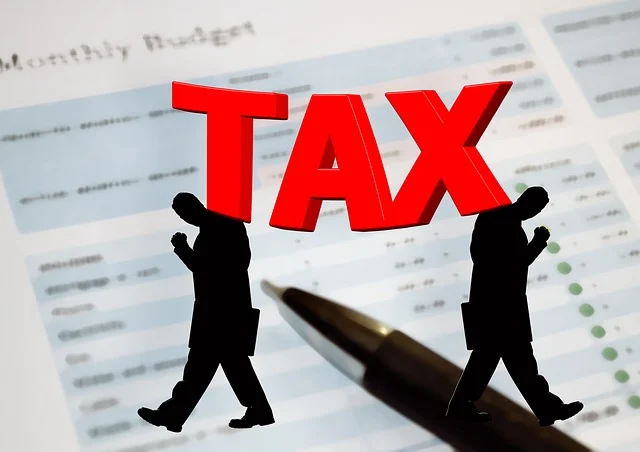Financial Planning for Expats in the Netherlands: A Comprehensive Guide

Moving to the Netherlands as an expat can be an exciting adventure, but it also comes with financial challenges and opportunities. Proper financial planning is essential to ensure a smooth transition and long-term financial stability. This guide covers key aspects of financial planning for expats in the Netherlands, including banking, taxes, pensions, insurance, and investment opportunities.
1. Setting Up Your Finances
1.1. Opening a Bank Account
- Choose a Bank: Major Dutch banks include ING, ABN AMRO, and Rabobank. Compare their services, fees, and expat-friendly features.
- Required Documents: To open an account, you’ll typically need your passport, proof of address, and a BSN (Citizen Service Number).
- Online Banking: Dutch banks offer robust online banking services, making it easy to manage your finances remotely.
1.2. Currency Exchange and Transfers
- Currency Exchange: Use reputable services like Wise (formerly TransferWise) or Revolut for competitive exchange rates.
- International Transfers: Consider the fees and exchange rates when transferring money internationally. Some banks offer expat packages with reduced fees.
2. Understanding the Dutch Tax System
2.1. Tax Residency
- 30% Ruling: If you meet certain conditions, you may qualify for the 30% tax ruling, which allows 30% of your salary to be tax-free for up to 5 years.
- Tax Rates: The Netherlands has a progressive tax system with rates ranging from 36.93% to 49.50% (as of 2023).
2.2. Filing Taxes
- Annual Tax Return: Expats must file an annual tax return. The deadline is typically April 1st of the following year.
- Deductions and Allowances: Familiarize yourself with available deductions, such as mortgage interest, healthcare costs, and education expenses.
2.3. Double Taxation Agreements
- Avoiding Double Taxation: The Netherlands has agreements with many countries to prevent double taxation. Ensure you understand how these agreements apply to your situation.
3. Pension Planning
3.1. Dutch Pension System
- Three Pillars: The Dutch pension system consists of three pillars: state pension (AOW), occupational pensions, and private pensions.
- State Pension (AOW): Eligibility depends on the number of years you’ve lived or worked in the Netherlands. Expats may qualify for a partial AOW pension.
3.2. Occupational Pensions
- Employer Contributions: Many employers offer occupational pension schemes. Understand your employer’s contributions and vesting periods.
- Pension Funds: Dutch pension funds are known for their stability and high returns. Check if your employer’s pension fund is affiliated with a major fund like ABP or PFZW.
3.3. Private Pensions
- Voluntary Contributions: Consider making voluntary contributions to a private pension plan to supplement your retirement savings.
- Tax Benefits: Contributions to private pension plans are often tax-deductible.
4. Insurance
4.1. Health Insurance
- Mandatory Health Insurance: All residents must have basic health insurance (basisverzekering). Compare providers to find the best coverage and premiums.
- Supplementary Insurance: Consider additional coverage for dental care, physiotherapy, and alternative medicine.
4.2. Liability Insurance
- Personal Liability (Aansprakelijkheidsverzekering): Covers damages you may cause to others. Highly recommended for expats.
- Home Insurance (Inboedelverzekering): Covers the contents of your home against theft, fire, and other risks.
4.3. Life and Disability Insurance
- Life Insurance: Provides financial security for your dependents in case of your death.
- Disability Insurance: Covers loss of income due to disability. Some employers offer this as part of their benefits package.
5. Housing and Mortgages
5.1. Renting vs. Buying
- Renting: Popular among expats for its flexibility. Be aware of high rental prices in cities like Amsterdam and Utrecht.
- Buying: Consider buying if you plan to stay long-term. The Dutch mortgage market offers favorable terms for expats.
5.2. Mortgage Options
- Interest-Only Mortgages: Popular in the Netherlands, but ensure you have a repayment plan.
- Tax Deductions: Mortgage interest is tax-deductible, providing significant savings.
5.3. Housing Allowance (Huurtoeslag)
- Eligibility: Low-income residents may qualify for a housing allowance to help with rent costs.
- Application: Apply through the Dutch Tax Administration (Belastingdienst).
6. Investment Opportunities
6.1. Stock Market
- Dutch Stock Exchange: Consider investing in Dutch companies listed on the Euronext Amsterdam.
- Diversification: Diversify your portfolio to mitigate risks.
6.2. Real Estate
- Rental Properties: Investing in rental properties can provide a steady income stream.
- REITs: Real Estate Investment Trusts offer a way to invest in real estate without owning property.
6.3. Savings Accounts and Bonds
- Savings Accounts: Dutch banks offer competitive interest rates on savings accounts.
- Government Bonds: Consider investing in Dutch government bonds for a low-risk investment.
7. Education and Childcare Costs
7.1. School Fees
- International Schools: Expats often choose international schools, which can be expensive. Check if your employer offers an education allowance.
- Public Schools: Free for residents, but instruction is in Dutch.
7.2. Childcare Allowance (Kinderopvangtoeslag)
- Eligibility: Parents using registered childcare services may qualify for a childcare allowance.
- Application: Apply through the Dutch Tax Administration (Belastingdienst).
8. Estate Planning
8.1. Wills and Inheritance
- Dutch Will: Consider drafting a Dutch will to ensure your assets are distributed according to your wishes.
- Inheritance Tax: Understand the Dutch inheritance tax rates and exemptions.
8.2. Power of Attorney
- Legal Authority: Designate a power of attorney to manage your affairs if you’re unable to do so.
9. Financial Advisors
9.1. Expat-Friendly Advisors
- Specialized Services: Seek out financial advisors who specialize in expat finances.
- Fee Structure: Understand the advisor’s fee structure to avoid unexpected costs.
9.2. Online Resources
- Expat Forums: Join expat forums and communities for advice and recommendations.
- Government Websites: Use official government websites for accurate and up-to-date information.
10. Regular Financial Reviews
10.1. Annual Check-Ups
- Review Finances: Conduct an annual review of your finances to ensure you’re on track with your goals.
- Adjust Plans: Make adjustments as needed based on changes in your income, expenses, or financial goals.
10.2. Stay Informed
- Tax Law Changes: Stay informed about changes in Dutch tax laws and how they affect you.
- Market Trends: Keep an eye on market trends to make informed investment decisions.




